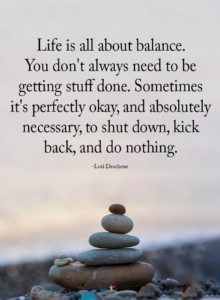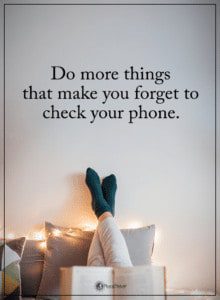If you go pretty much anywhere these days, you’ll find most people glued to their phones, probably suffering from a smartphone addiction without even knowing it. Smartphones have become more like an extra limb than a tool to access information, and scientists have even come up with a word for the fear of going without your device: nomophobia. This word is short for no mobile phone phobia, and it affects a surprising amount of people.
According to a New York Times report, teens and adults look at their phones around 150 times per day and send roughly 110 text messages. A 2015 Pew Research Centre study also found that 24% of teens reported looking at the Internet “almost constantly.” Surveys done in the United States and Europe discovered that between 1.5% to 8.2% of people suffer from a condition called Internet Addiction Disorder (IAD), similar to smartphone addiction. Other reports have found even higher rates between 6% and 18.5%. Furthermore, a whopping 46% of smartphone owners say they couldn’t survive without their phones.
While smartphones have provided us new ways to communicate with loved ones and access information from anywhere, they also have the potential to disconnect us from our surroundings. When we unlock our phones, we have the whole world at our fingertips, and sometimes, this can seem overwhelming. With so many choices, many of us get sucked into keeping up with the latest social media trends or scouring news articles and forget about our real lives at home. This new virtual world offers hours of entertainment and memes galore, but at what cost?
Using your smartphone too much can cause serious mental, physical and emotional issues over time. Below, we’ll go over signs of a smartphone addiction, and what you can do to break it.
Here are 7 signs you’re suffering from a smartphone addiction (And what to do about it):
1 – You suffer from insomnia, often waking up in the middle of the night to check your phone.
Smartphone addiction can lead to trouble falling and staying asleep. Research shows that the blue light coming from your phone can disrupt your circadian rhythm and melatonin levels, which throws your sleep out of whack. If you often stay on your phone leading up to bedtime and even wake up in the middle of the night to check notifications, you might have a smartphone addiction.
Try to get off technology a couple of hours before bed, and dim the lights so your body knows it’s time to sleep soon. Keep your phone in another room for a while if you feel tempted to use it, or put it on a table out of reach to charge overnight. If you do wake up in the middle of the night, try reading a book or getting up to walk around until you feel sleepy again.
2 – You have bad anxiety when you don’t have your phone near you.
Like most addictions, you feel anxious without your smartphone near you at all times. If you can’t have access to it or use it as a crutch, you simply don’t know what to do with yourself. However, don’t beat yourself up if you feel this way. As we stated at the beginning of the article, roughly half of the population feels uneasy without their phones. This doesn’t mean that you shouldn’t work on correcting the anxiety if it impedes your life, though.
Try to go for some periods of time throughout the day where you don’t check your phone at all. After you’ve mastered this for a week or two, go out for a walk in the park without your phone or maybe even on a couple of errands. At first, it will feel downright scary to not have your phone on you, but eventually, you’ll notice how freeing and calm you feel without it.
3 – Social media stresses you out or makes you depressed.
Many people use their smartphones primarily to keep up with social media. However, a lot of people report feeling anxious or depressed after looking at their social media, perhaps due to comparing themselves with others or reading negative comments. We’ve become social media addicts, and this can have detrimental impacts on our emotional and even physical health. While being able to talk to anyone in the world 24/7 can seem exciting, it can lead you to distance yourself or even avoid the people around you.
Social media shouldn’t be seen as a replacement for real-life interactions. Checking in a couple of times a day for messages or updates from friends won’t hurt, but endless hours of scrolling can impair decision-making and lead to riskier decisions, a study found. Other reports have linked heavy social media use with increased anxiety and depression.
If you feel like you have a compulsive tendency to check your social accounts many times throughout the day, you might have social media as well as smartphone addiction.
4 – You can’t seem to do any task for long periods of time without checking your phone.
Do you find yourself distracted from the task at hand often? Maybe when you’re putting up laundry or washing the dishes, you take frequent breaks to check your phone for notifications. Or, you might even check text messages while driving, which can lead to serious consequences. No matter what you’re doing, you just can’t seem to stay away from your smartphone for too long.
Smartphone addiction can lead to problems paying attention and remaining engaged in conversation. If you have trouble completing tasks without checking your phone multiple times, try putting it in a different room so it doesn’t distract you.
5 – You have physical feelings of discomfort without your phone.
You not only feel psychological symptoms when you don’t have your phone on you, but physical feelings start to creep in as well. A study found that people who had their phones taken away and couldn’t answer their phones while completing puzzles, they suffered from the following symptoms:
- heart rate and blood pressure increase
- feelings of anxiety and unpleasantness
- cognitive abilities decreased
Other physical symptoms can include sweating, nervousness, restlessness, and other feelings similar to what you might feel if you have anxiety.
6 – You mindlessly scroll for hours.
If you find yourself being on your phone without having a need for it and spending long periods of time looking at social media or other sites, you might have an addiction. Using our phones as a tool to access information, talk to loved ones, or complete work can improve our quality of life. However, using it as an escape or to decrease boredom will only lead to feelings of unhappiness down the road.
 7 – You feel phantom vibrations.
7 – You feel phantom vibrations.
Many people report feeling their phone go off when they haven’t gotten a notification at all. In fact, one study found that 90% of undergraduate students experienced this phenomenon, which occurs when the user perceives vibrations from their phones but doesn’t actually get a call, text, or notification. Scientists have said this causes people to reach for their phones compulsively, which resembles an addiction.
If this sounds like you, try to gradually decrease the number of times you check your phone throughout the day. You’ll start to gain mental clarity and just feel better overall without being glued to your phone all day.
How to break a smartphone addiction
Sometimes, breaking an addiction means you need to just go cold turkey for a while. This might not work for everyone, but heavy users should experience what it feels like looking at the world without filtering it through a screen for a period of time. This will help reset brain chemistry and remind them that they can live without their phone; they just needed to remind themselves of it.
Here are some tips for getting off your phone:
- Don’t keep your phone in your room at night. Charge it elsewhere so you don’t feel tempted to use it before bed or during the night.
- Practice going places without your phone. You’ll remember what it felt like during the good old days when smartphones didn’t exist and people just went about their days.
- Get out and socialize. Many people who compulsively use their phones simply feel lonely or bored. If you replace the time spent on your phone with real-life relationships, you’ll start to realize how much better you feel living in the real world.
- Find a hobby. Instead of being on your phone, why not delve into your creative side or go for a bike ride? With any addiction, you just need to find something else to focus your attention on.
 Final thoughts on smartphone addiction
Final thoughts on smartphone addiction
Smartphones have become so pervasive in society that they affect every area of our lives. We rely on our phones for so much that it seems almost impossible to live without them. However, we should remember to use them as a tool to improve our lives rather than as an escape or a crutch. As with anything, we should use them in moderation and remember the beautiful world we live in outside our screens.
The post 7 Signs You Have a Smartphone Addiction (And How to Break It) appeared first on Power of Positivity: Positive Thinking & Attitude.
【Top 10 Malaysia & Singapore Most Beautiful Girls】Have you follow?

